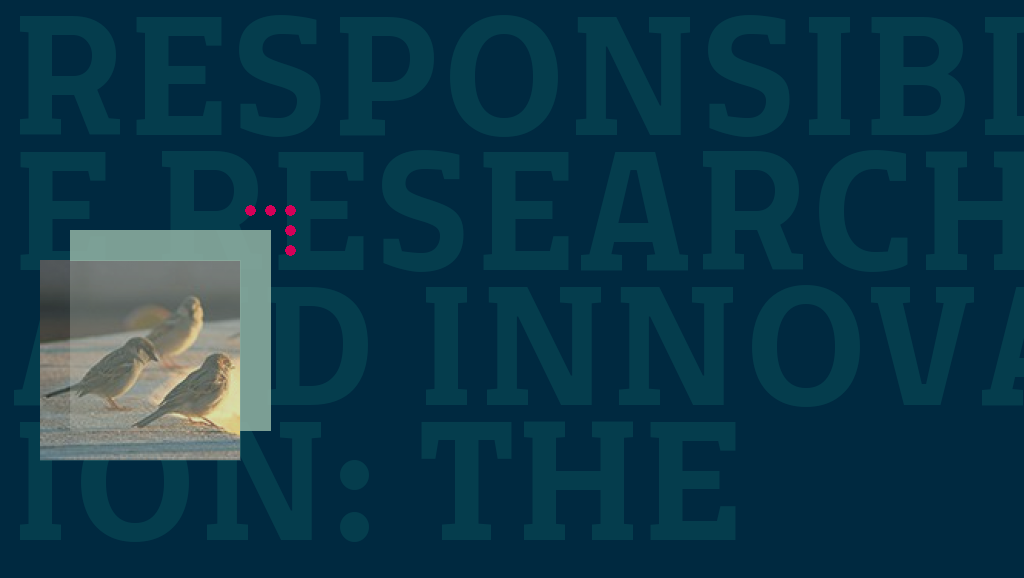The Responsible Research and Innovation: The Problematic Quest For Right Impacts International Conference took place between March 11th and 12th, 2016 at the Donastia International physics Centre, Donastia-San Sebastian. The conference was followed by the Annual VIRI meeting. I attended both the conference and the AGM in my role as Bassetti Foundation Foreign Correspondent. In this post I offer some reflections on the many issues addressed and questions raised over the three day events.
The conference
Regular readers will be familiar with most of the names in the program, a copy of which can be downloaded here. Invited speakers included David Guston and Brian Wynne, backbones of the developing RRI debate and both former visitors to the Foundation. David Guston visited in 2010 while Brian Wynne visited back in 2008. Readers can find out more about the events through the links above. Rene Von Schomberg who readers will also be familiar with also delivered a lecture, as did Arie Rip and Arizona state University’s Erik Fisher.
Throughout the conference several fundamental questions were raised and returned to: What are the so called right impacts? If EU policy aims to stimulate jobs and growth in GDP, and science and technology development is not seen as controversial, and is an objective of the EU and mandated as such, how should the right impacts be defined? What is the position of open science in this structure? How can a pillar system be operationalized in terms of RRI? How should these questions be addressed and communicated in the absence of a central all knowing communication agent? Can objectives be stated in social terms? Will RRI make science more controversial? Just to name but a few.
The issue of how to describe RRI was also a repeated topic of discussion. The framwework question played a part in these debates, but also the question raised by Arie Rip of whether RRI could be seen as a social innovation, questions of boundary drawing such as those described as sustainability or sustain-ability, and issues of normative design.
Concepts such as collaborative science as described by Fisher, anticipatory governance from Guston, RI in practice, flexible specialization , divisions of moral labour and problems surrounding the use of economic language and categories, with the suggestion of alternative tools to measure well-being also brought to the fore.
The promises and futre of RRI was another recurring topic, brought forward by Wynne, Pelle’ and Macnaghten amongst others.
The conference concluded with dinner with the VIRI meeting following directly on.
VIRI Anual General Meeting
In her review of proceedings linked below, Sally Randles offers an overview of the meeting:
”The VIRI presentations confirmed that we are seeing quite a degree of convergence in the research of VIRI members around the topic of the responsible ‘governance’ of new and emerging social and material technologies, along three under-scoring dimensions. These three dimensions suggest both a coalescing of the normative heartland of the institute (how the members feel research and innovation should be done); and a basis for methodological orientation (ie appropriate methodologies aligning with this normative heartland include participant-observation, ethnography, rich interviews, and action-research seeking to bring about change in, for example behaviours, decision making, organisational design and incentives, and isomorphic institutional structures). The three convergent research orientations of the field appear to be:
1/Research which is inclusive to a wide range of actors, in particular bringing into the dialogue otherwise silent or absent voices including lay publics and civil society organisations.
2/Research which orientates attention to addressing societal problems and challenges, delivering positive impacts for societies, in so-doing highlighting the necessity for inter-disciplinary research across the natural and social sciences, demonstrating examples and discussing how best to achieve it.
3/Research which takes a futures-oriented or ‘anticipatory’ approach especially in the governance of new and emerging technologies where uncertainty couples with ubiquity; at the vanguard of research and experiments involving the re-design of critical organisations and institutions, the development and assessment of new business and techno-economic models; and imagining new configurations of research and innovation systems, and their evaluation.
In sum the field of responsible innovation involves a myriad ways of researching and conducting experiments in institutional change, by illuminating and voicing the harms that result from the maintenance of isomorphic tendencies of various kinds; identifying incentive structures which hold old models in place; and designing new governance instruments, incentives and entrepreneurial responses to nudge research and innovation systems onto new trajectories deemed more responsible (more equitable, more inclusive, more sustainable, more responsive to societal needs and attaining a wider distribution of economic surpluses) than the current status quo”.
Her full report is available here.
Both events were well organized and coordinated, and I send my personal thanks and congratulations to all those involved. Photos are available here.
(Photo: Sparrows by Avital Pinnick from Flickr)

















